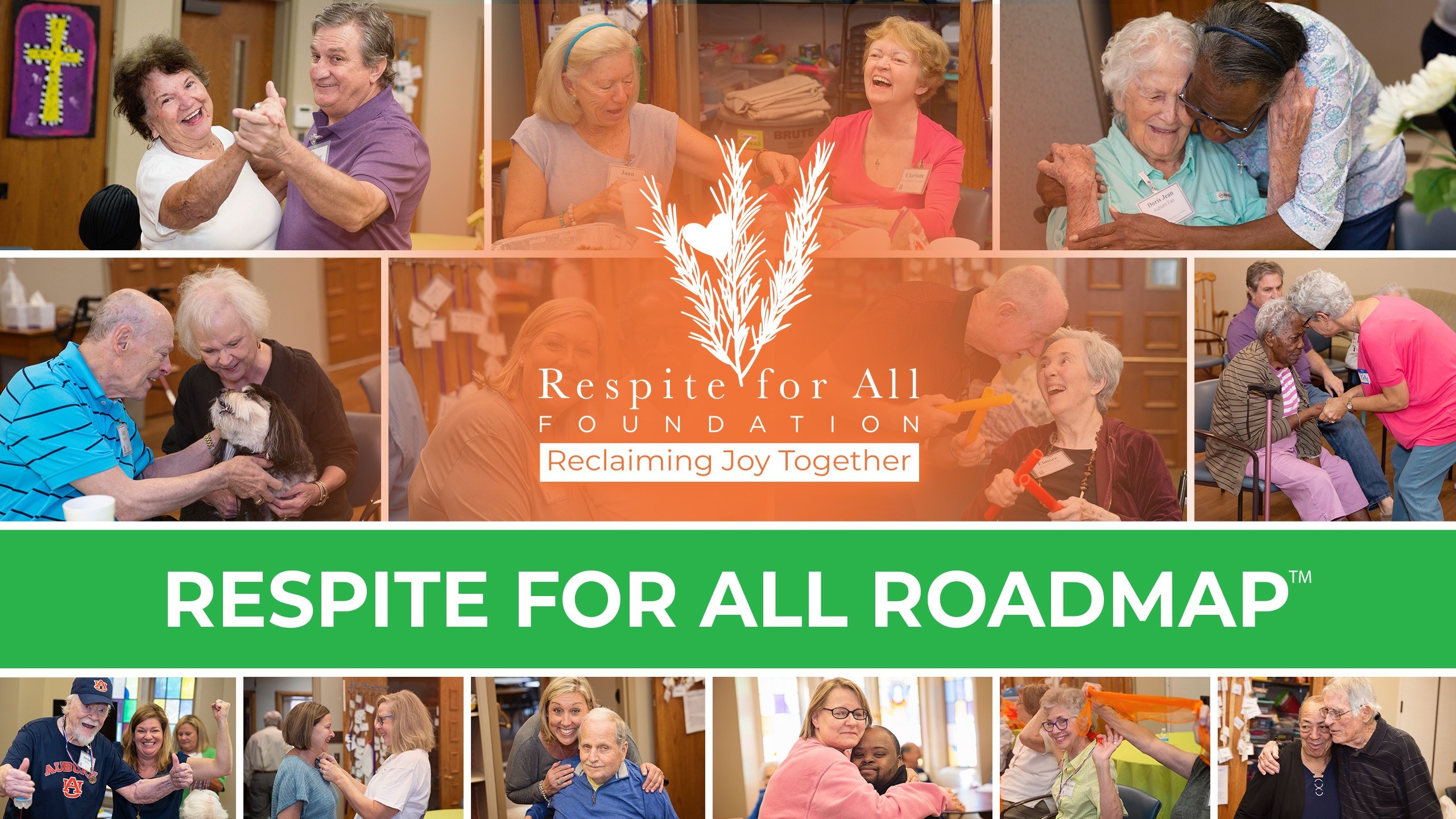
Introducing the Respite for All Roadmap™
A national, award-winning, comprehensive blueprint for creating, launching, and maintaining a thriving Respite Ministry in your community
The Respite for All Roadmap is a one-of-a-kind program that shows you exactly how to build a thriving Respite Community through a proven faith-based, volunteer-driven model, ultimately bringing hope to your community by addressing a significant social need for those with dementia and their families.
Before we get started, let’s clarify exactly who this program is for.
Respite for All is a program for churches and faith-based organizations across the U.S. – any size, big or small, and any denomination.
It’s for churches wanting to become community assets and neighborhood leaders – churches that want to be a center of outreach and a go-to resource.
If you know people in your community who’ve ever been touched by Alzheimer’s or dementia, this program can help your church become a proven response to the support needed, one that brings hope, healing, and renewal to your family or others.
In fact, you might be wondering how it’s even possible to start a ministry like this, and that’s okay. That’s why Respite for All is here. We’re going to tell you exactly how the Respite for All Roadmap will give you the tools, inspiration, and unparalleled support on your journey to get started.
Not to mention the national network, continuing education, and best practices behind you as your program excels.
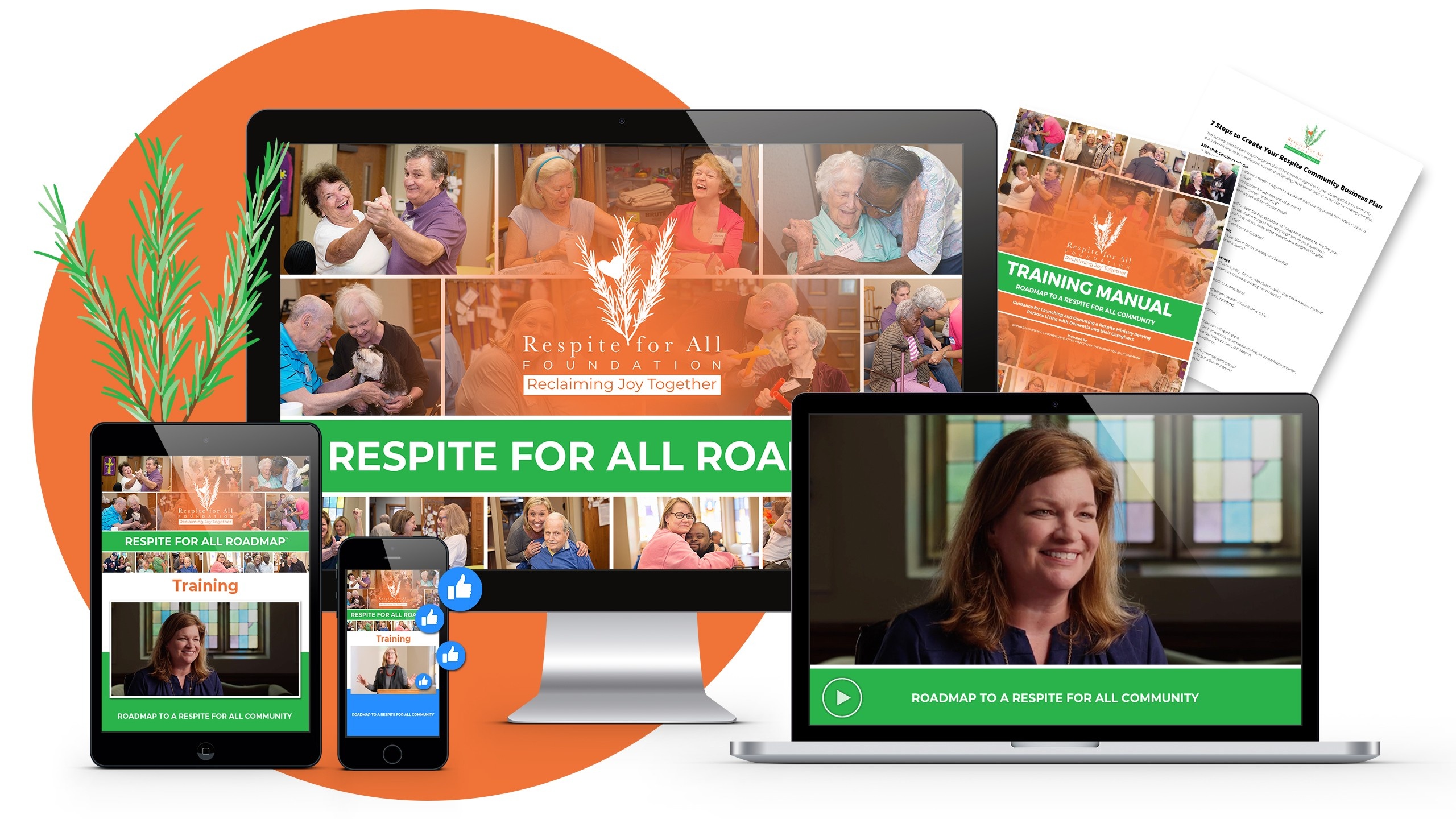
The Respite for All Roadmap video training was produced for local visioning and leadership teams to understand the theory, processes, and benefits of launching a Respite Community.
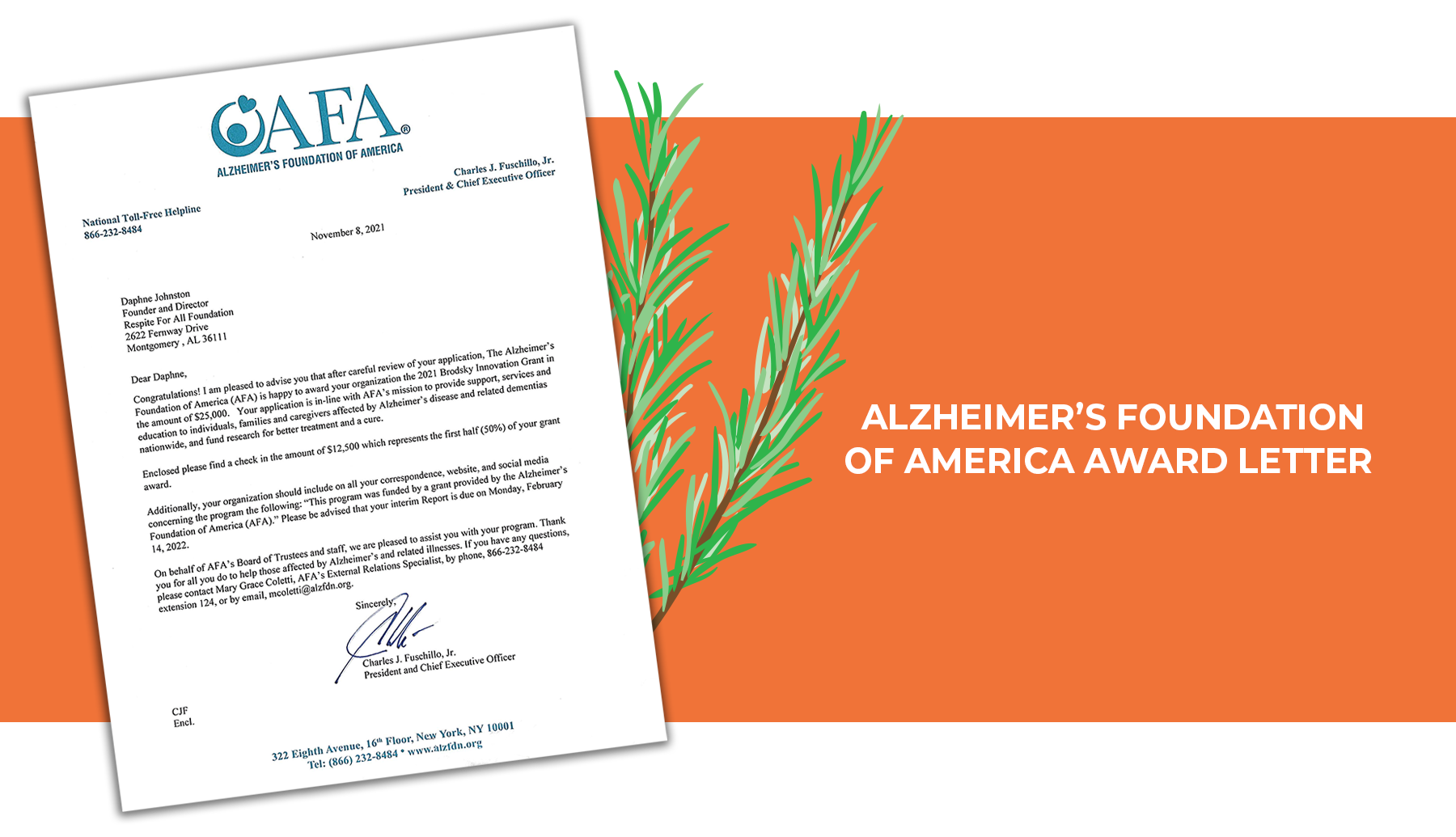
This series was developed to help church staff and lay leaders with a passion for this ministry understand the best practices that have helped sustain the 25 communities in the Respite for All network, but on their own time.
By the end of this program, you will have:
-
Insights into the Respite for All model, why it is sustainable, cost-effective, and how it helps solve a community need
-
Tools and resources to develop, implement, and market a Respite for All community in your local area that holistically benefits those living and touched by dementia
-
Be able to put any insurance worries aside (this program is very low risk because it’s a social program, NOT medical, and typically, it will fall under the umbrella of insurance already in place – however, it does depend on what coverage you have)
-
Knowledge needed to secure the right Respite Director
-
Skills to recruit and train volunteers
-
An understanding of common types of dementia
-
Guidance on serving individuals with dementia – you don’t have to be an expert. Remember, this is a social support model. No medical care is provided here
-
Expertly be able to cast the vision for the congregation to embrace (even if you can’t see the vision yet, don’t worry, this training will bring it to life)
-
Develop and organize the business structure of the program within the church
-
Create a unique program utilizing the resources and recommendations provided
-
Most importantly, honor and support families living with Alzheimer’s and other forms of dementia
"The Roadmap Video Training is outstanding and very helpful. It provides a comprehensive training that is engaging and easy to follow. Daphne and her team cover everything from how to launch a Respite ministry, promote it, and carry it out programmatically, as well as administratively. A key component for making a Respite ministry thrive in a local church is for its clergy to get behind the ministry and support it wholeheartedly. This training helps make that happen. It is informative and inspiring; and, it is a perfect resource for busy pastors who do not have time to break away for in-person trainings.
Thank you Respite For All for this invaluable resource!"
Rev. Claire Dobbs
Senior Pastor, First United Methodist, Gulfport, MS
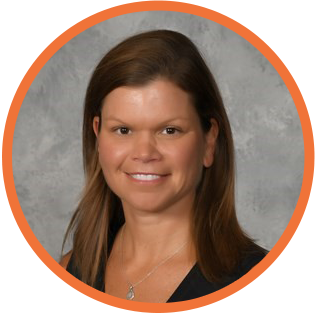
A diagnosis of dementia often plunges individuals and families into disorientation and, oftentimes, despair.
Creating a Respite Ministry is a way of responding with fresh resources, renewed hope, healing, and joy. Purchase this interactive program today.
The online training program is a one-time payment of $650, but before you get started, email Respite for All Resource Director June Jernigan at June@RespiteforAll.org, and she will guide you through the next steps.
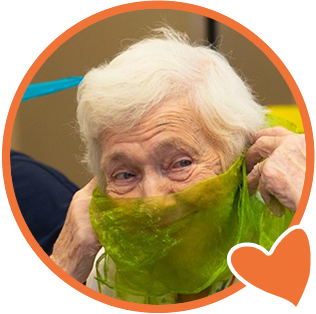
My husband was diagnosed seven years ago with Mild Cognitive Impairment, but it was quickly upgraded to Alzheimer’s. He did well at home for several years as long as I was there with him. As he began to forget how to accomplish everyday activities, it got to be a challenge to keep him occupied. When he could no longer enjoy past hobbies or drive, I would have to provide constant attention or take him somewhere. When we discovered the Respite program, he was very happy to be with the people there who provided the attention, love and care that he needed.
Respite not only occupied his time, it filled him with peace. He actually had a break from the anxiety he felt at home and the loneliness of the disease. It gave me time I needed to accomplish house and yard work and business matters and provided a much-needed break. The time to myself was a gift, but to see him engulfed by a group of friends again was priceless. The love of my life meant something to people again. He was part of something greater than himself, and it gave quality to his life and to mine.
Respite provided an outlet for both of us to rest, recover and re-energize. The program not only enabled us to live together at home but provided both of us with love and support. It was a wonderful blessing for him and continues to be for me as I have come back to volunteer since his death.
Linda Wilson
FUMC Respite care partner and volunteer
Respite is like a breath of fresh air in lives that have gone stagnant. It is an anchor for lives that have been overwhelmed by a gulf of anxiety, unfamiliarity and tremendous uncertainty. It provides an opportunity for people who have time in their lives to pour into others, but don’t quite know how or where or what to do, which in turn provides the foundation for surprising relationships and camaraderie with those you come to serve.
Respite is defined by the prefix ‘inter,’ as in interdenominational, intergenerational, interracial, intergender (if that is a word) and inter-acceptance (meaning you are accepted at whatever point you are in life with whatever you can or cannot bring to the table). Respite is where someone who is sinking can find solid ground. To borrow an old Charlie Brown phrase: Respite is a warm blanket.
Tricia Seay
FUMC Respite volunteer
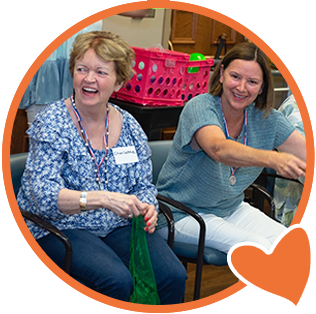
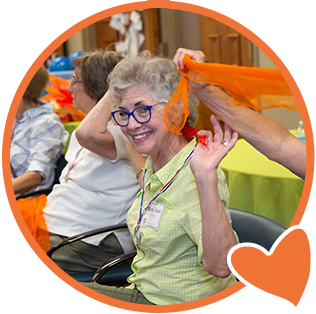
Hettye Sue was always an easy-going social being who thoroughly enjoyed her friends, in particular, the members of her tennis teams. It was devastating to her that they quickly faded away and never called or asked her to socialize in any way. She was still taking lessons, could hit the ball well and would remark to me as we walked by the courts when I picked her up that she could still beat most of them, yet she never got an offer to play. She would blame me for not allowing her to drive. I told her that I thought that she was correct about still being capable of competing with those on the court, but I could not force them to invite her. There is a different reception, support and empathy afforded individuals with most severe medical illnesses versus that afforded patients with dementia. The former maintain a social support group, which is great, but the latter are quickly abandoned.
The Respite program filled that void, including reestablishing bonds with some long-term friends that she had been unable to engage outside that setting. That made her feel like she still had a sense of self-worth and purpose.
Mike Bridger
Respite care partner
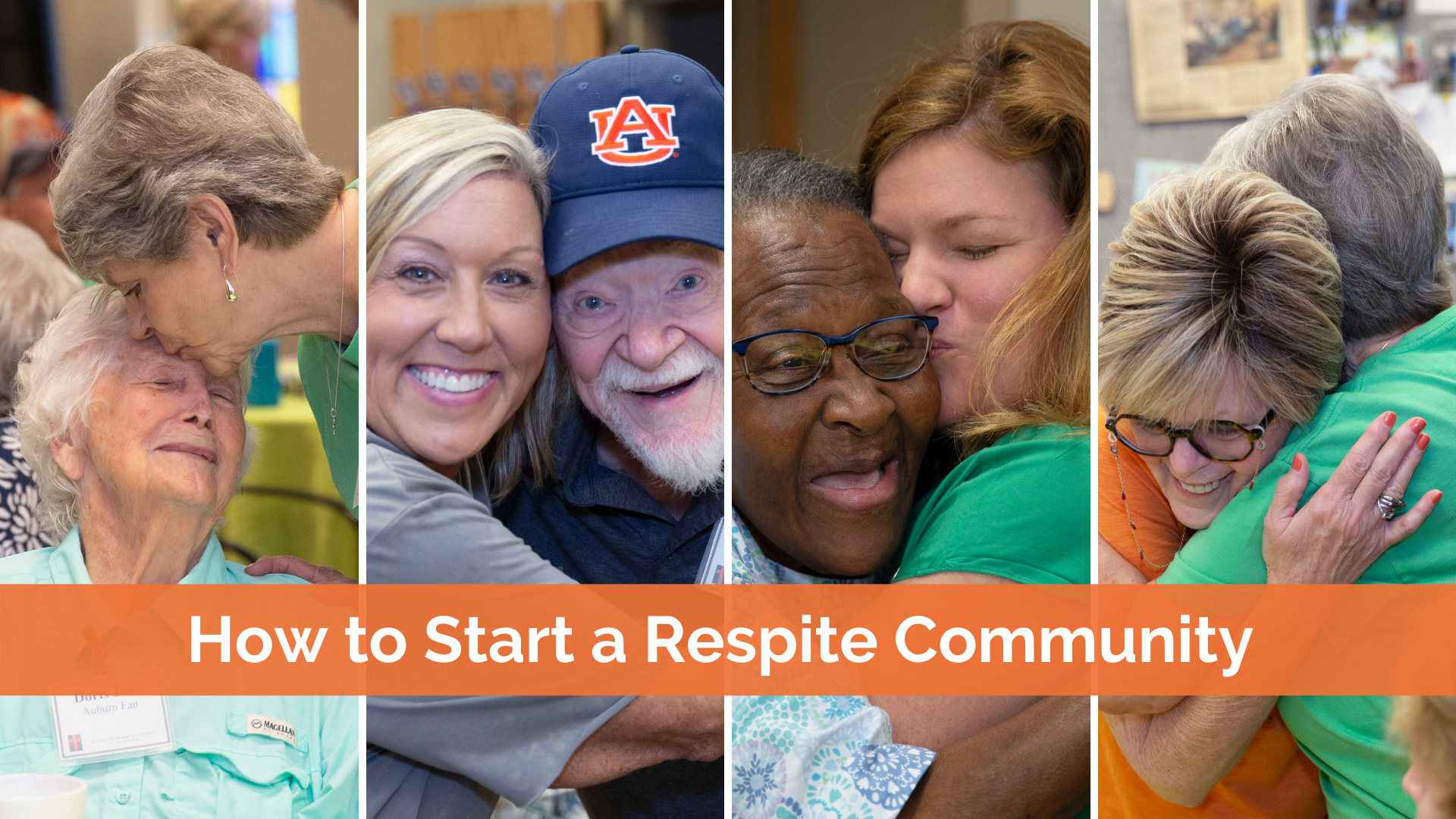
What’s Included
Module #1 – How to Start a Respite Community
Here's why it pays to learn from others who have gone before you – because we have the proven processes, the tools and resources, the mission, and the creation and growth strategies all carved out for you. In this module, we will break down the concept of Respite, the vision, and the program's history.
Then we'll start setting you up for success by highlighting each of the items you'll need to get up and running and talk about some of the big decisions you will have to make. Our goal here is to help you achieve clarity about where you're going and how you will get there. Remember, we've already built the program, so there is no need to reinvent the wheel. We will tell you what you have to tackle first so you can create momentum going into your launch.
Highlights from this module include:
- Launching touchpoints and topics of discussion
- How many days a week will your program run?
- Picking your staff based on your needs
- Learn what sets the program apart – how Respite for All provides purpose, camaraderie, and meaning
- How to create a no-label atmosphere
- How and why a Respite Ministry is sustainable
- Startup funds recommendations
- Three crucial items needed to start a respite community
- Revenue breakdown
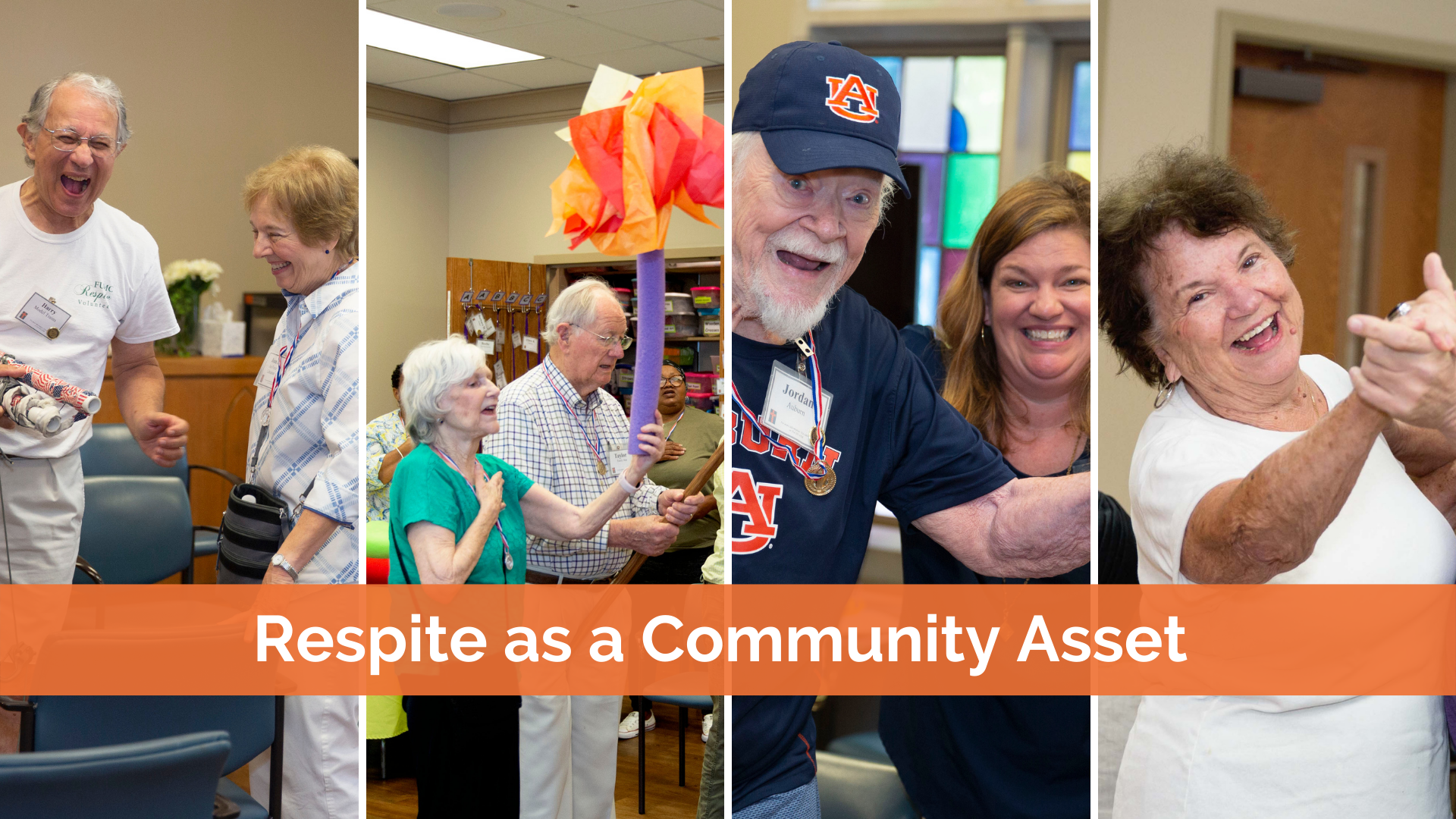
Module #2A – Respite as a Community Asset
Is your church seen as a valued neighbor in your community? Is your church known for community outreach? Regardless of the answer, this module will talk about how you can expand your reach and become that community asset – or an even bigger one. Respite for All is a movement that creates communities of hope, purpose, and meaning for those with Alzheimer’s and dementia, and the next one starts within your church.
Highlights from this module include:
- Learn how Respite Ministry is responding to a social need through the church
- Discover how people from all walks of life and varied church backgrounds can and will come together as a part of the support system and network
- Understand the growth and vitality that is brought to a church through a Respite Ministry
Module #2B – The Theology of Respite
When we’re on to something, others can tell, and they are drawn too. Not only is Respite an asset to the community, not only does it bring vitality to the local church; but through hands-on participation with individuals and families, respite ministry enables us to experience for ourselves a theology of creation, a theology of redemption, and a theology of hope.
In this module, Bishop Lawson Bryan talks about the power of Respite and how it goes beyond the borders of the ministry’s primary mission, reaching far more people than just its participants and volunteers.
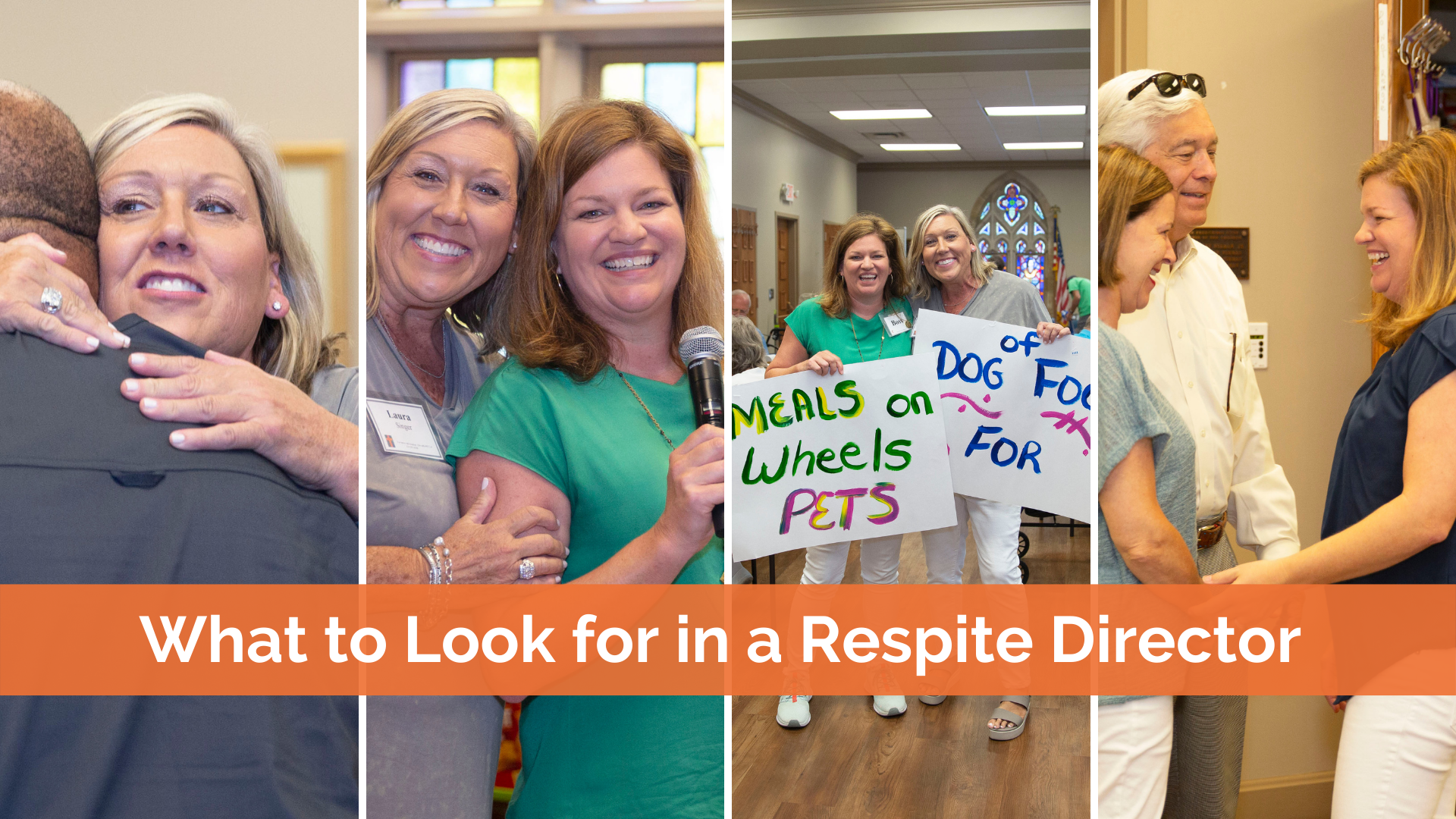
Module #3 – What to Look for in a Respite Director
When it comes to your leadership, you may choose a different way to organize your program and the directors’ responsibilities as you see fit for your church. But a few common denominators stand out in successful Respite programs. In module number three, we will talk about:
- Key personality traits that make a successful director
- Recommendations as to who would make a good candidate – what backgrounds and experience you may want to consider
- Why you should wait until you have the right director in place before you start your Respite Ministry
- Mapping out director responsibilities and logistics
- What happens after the director is hired?
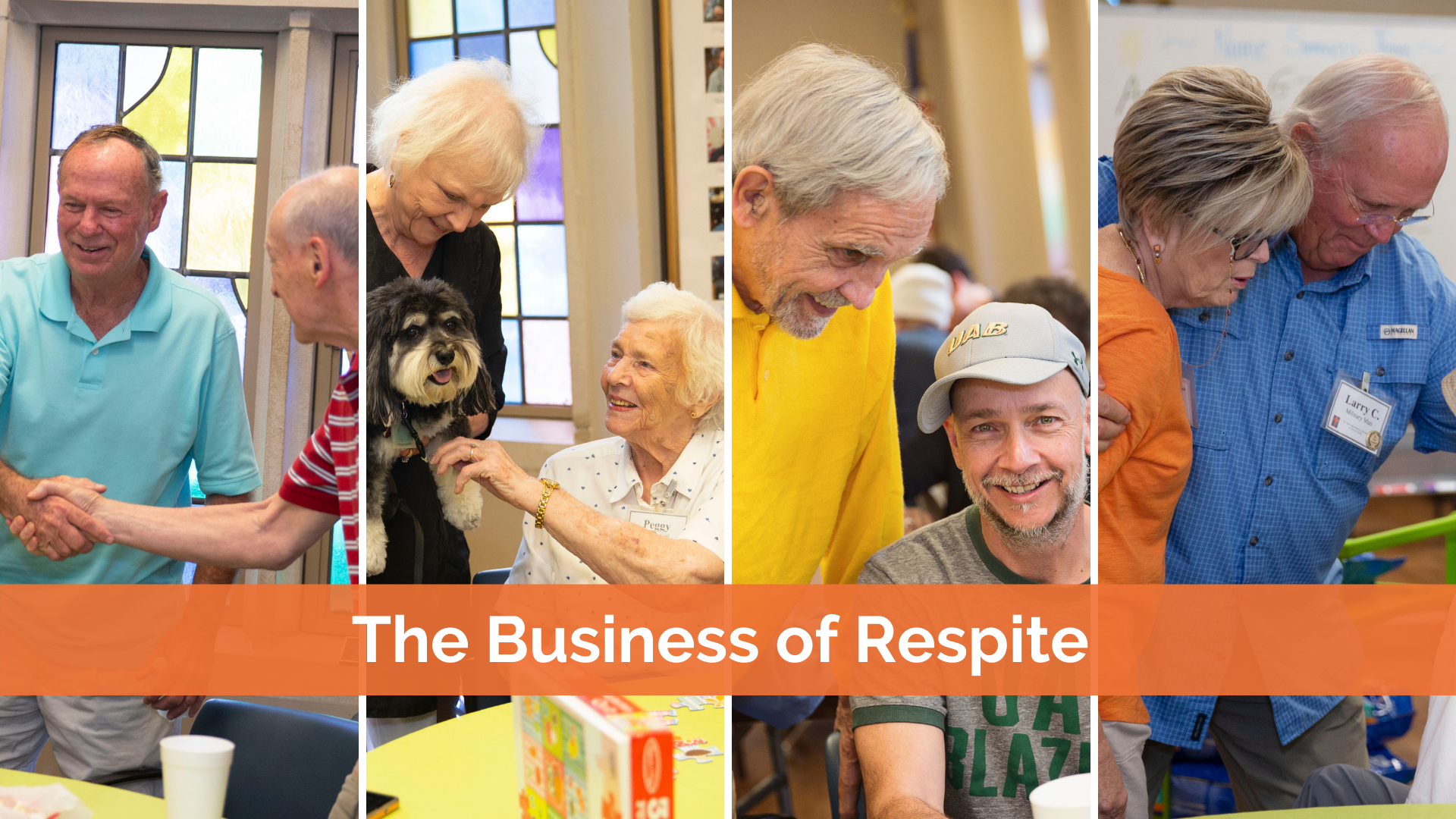
Module #4 – The Business of Respite
This module is worth the cost of the program alone. In it, you’ll learn the essentials of creating your business plan and funding the program. That’s right, we’ll break down the dollars and cents of tuition and income, and show you how this unique ministry pays for itself. So if numbers provide a scare factor, fear not because we give you all the numbers you’ll need to get started. Just remember, you will need to make adjustments for your specific church and program. We will also discuss options for possible organizational structures and touch on insurance.
Highlights from this module include:
- How to get organized
- How to partner with your finance office
- Fees and fundraising
- Cost analysis of potential Respite revenue
- Marketing strategies
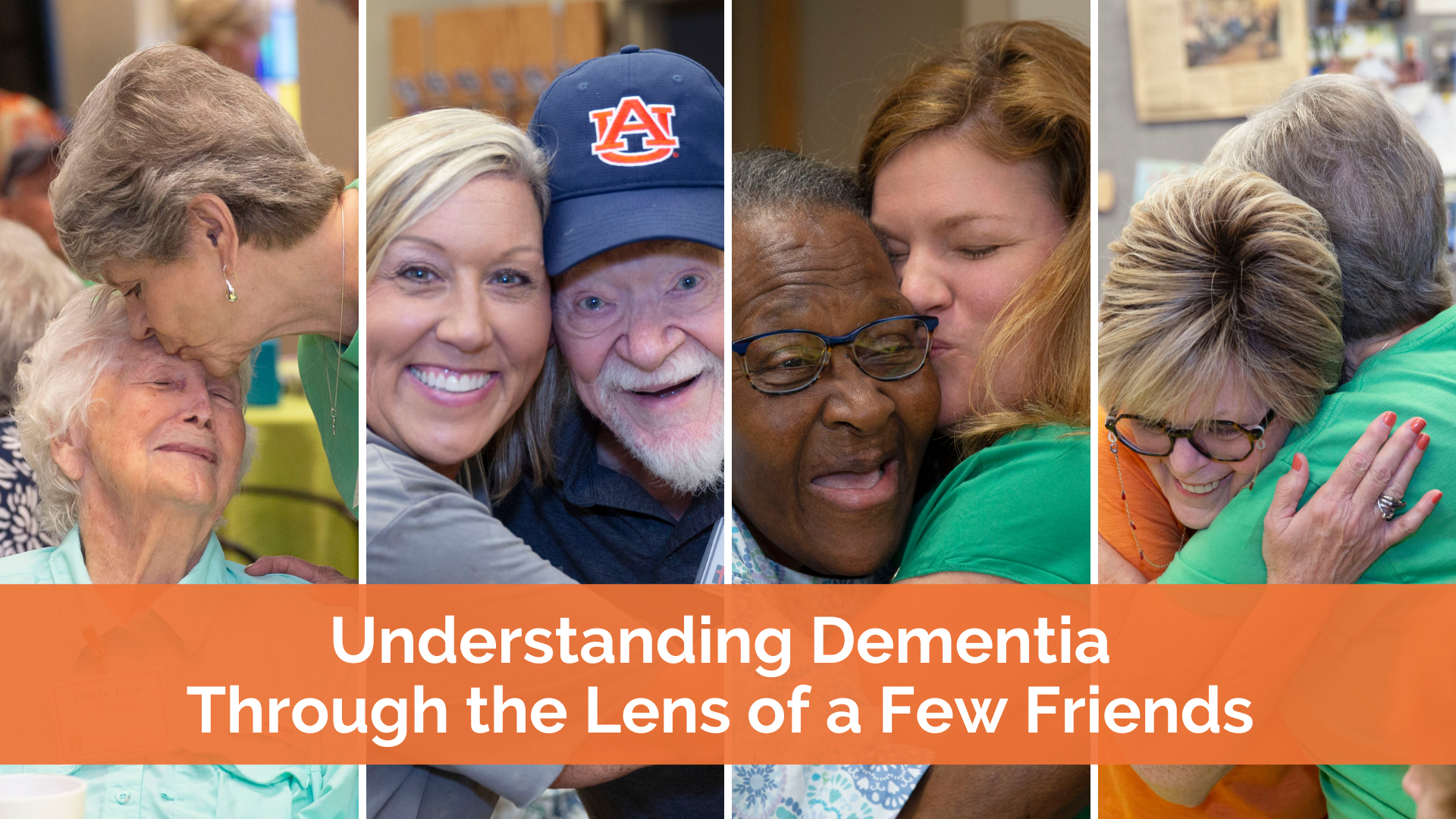
Module #5 – Understanding Dementia Through the Lens of a Few Friends
Right now, almost 6 million people in the U.S. are living with dementia. However, the number of people actually affected by this condition is much higher as it touches the friends and family around the person diagnosed. To fully understand the need for Respite, module five will study the most common types of dementia.
This module features Robin Dill, a fellow Respite community leader who started and directed a ministry in Lawrenceville, Georgia, in 2005. She shares stories and insights of her friends with dementia who are part of the program. Robin explores how the different types of dementias impact individuals differently based on their history and personalities. This module also recognizes how volunteers and staff may want to interact with Respite friends and what programming might look like based on participant needs. It is a very helpful video to share with new volunteers in training.

Module #6 – Volunteer Training
The Respite for All model was initially designed to give a break to care partners. However, it quickly evolved to extend that same break to the volunteers. They are the lifeblood of our program. Without them, we wouldn’t exist. This module helps you truly grasp the volunteer role and provides resources so that you can train them in the language, practices and purpose of Respite.
Highlights from this module include:
- What the day-to-day of a Respite Ministry looks like
- What volunteer expectations look like
- Program expectations
- Relationship building
- How can volunteers offer service and purpose – giving back to those who have built our community
Let's Recap
When you purchase the Respite for All Roadmap, you’ll get:
- 6 implementation modules offering you all the tools, strategies, and resources needed to create a community that offers friendship, education, growth, and, most importantly, hope.
- A complete, step-by-step launch plan showing you how to launch and operate a Respite Ministry.
- Easy marketing strategies, business planning guidance and successful programming ideas so you don’t have to reinvent the wheel.
As a Respite “dreaming” community participating in this training program, you are authorized to download the videos in this series and other supporting content to share only with other members of your Respite community, including clergy, future directors, and lead volunteers who are part of your program for the purposes of learning at your own pace.
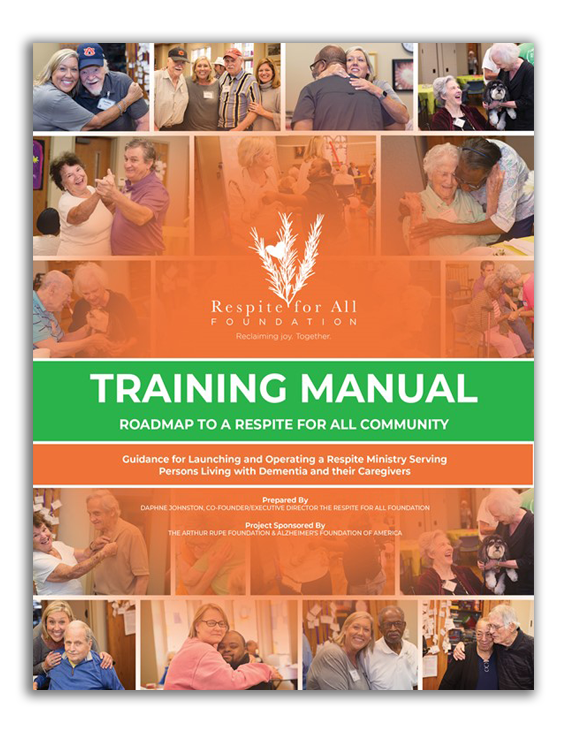
Plus a Lot of Extras
A Zoom call with our resource director June Jernigan to help you walk through next steps.
A presentation with Daphne Johnston and June Jernigan to your local visioning team so they can understand the concepts and ministry model, gaining comfort in making the decision to launch.
Roadmap to a Respite for All Community Training Manual – Guidance for Launching and Operating a Respite Ministry Serving Persons Living with Dementia and their Caregivers: Keep your plan moving forward with a 100-page guidebook in a 3-ring binder that coincides with each module.
Sample Forms and Templates that you can download and customize as you create your own documents for participant enrollment, program operations, and business planning. Plus, you’ll get a sample PowerPoint presentation that you can use in training your own volunteer team.
Exclusive Access to the Respite Leaders Group on Facebook, where you can network with other RFA Community Leaders and gain even more insights and best practices from existing RFA programs.
Extra Support Opportunities: Once you launch your program, that doesn’t mean RFA falls away, and you’re on your own. You’ll also get access to coaching and support from team Respite for All.
Ready to Get Started Building Your Respite Community?
Contact our Resource Director June Jernigan at June@RespiteforAll.org.
Still not sure? Think about this…
By 2050 it is estimated that there will be more than 15 million people in the U.S. living with dementia. In 2015, the global societal cost of dementia was estimated at $815 billion by the World Health Organization.
Think about the estimated cost three decades from now. That amount of money is SO large I don’t think anyone can accurately do the math!
We have the facts and the opportunity to begin preparing now because we know a bigger problem is coming. Yet the answer is not the internet, a one-size-fits-all dementia pill, or lockdown units for millions. Rather, it is a new way forward. One filled with neighbors helping neighbors – and helping one another bear the load of care. Surprisingly enough, the hope within this model isn’t even medically related. It’s social. It’s Respite – “a short period of relief from something difficult or unpleasant,” yes, Respite for ALL. For the caregiver, the friend living with dementia, and the volunteer.
"This training is invaluable when starting a new respite program!! It provides a solid base of information for the volunteer team and ensures consistency and accountability as the program develops. I highly recommend this training for everyone who is in the planning stages of building a new program."
Jan McCoy
Director, “Sonrise” Respite, The Villages, FL
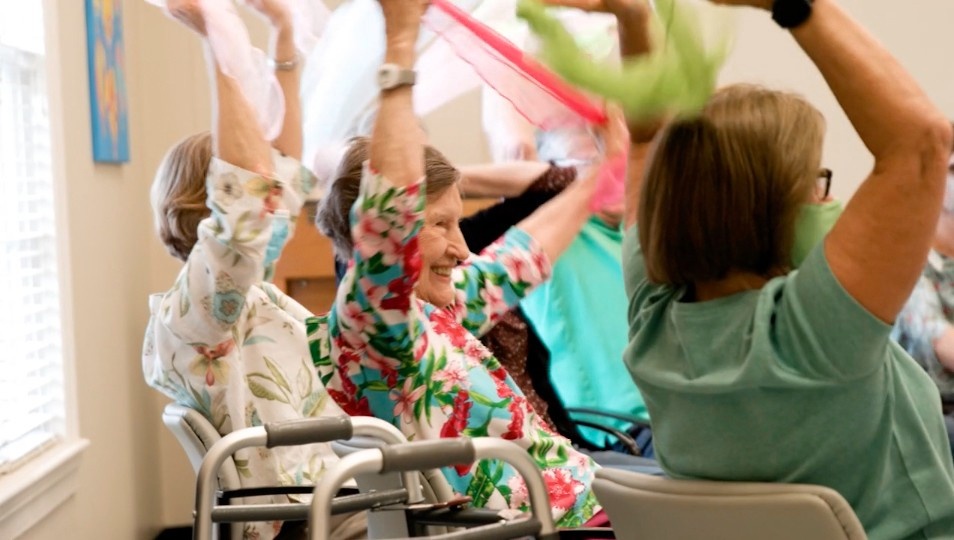
The Respite for All Roadmap offers the necessary change needed to transform the global narrative of dementia.
This training course is not just a guide outlining what the Respite Community and program have learned and become. It is a framework that makes the RFA vision actionable for the future, providing a sustainable response – building a nation of Respite Communities all guided by one driving purpose: to come alongside others who need the help of neighbors and new friends.
Your Respite Community can be the next to bring hope and offer a place where volunteers and participants alike use their creative gifts to serve.
The time is now to join the Respite for All movement.
A One-Time Payment of $650

